South African economy struggles under the weight of the pandemic
The South African economy, which was already struggling before the pandemic due to slow growth and high unemployment, faces further headwinds as policymakers attempt to mitigate the damage of COVID-19. Before the pandemic hit, the unemployment rate in the first quarter of 2020 was 30 percent, and South Africa was in its second recession in two years. As COVID-19 set in, 1 in 3 income earners in February had lost their source of income by April. Half of these people were permanently laid off. Laborers already more vulnerable than others have been disproportionately hit as well: Two-thirds of the net jobs lost belonged to women, while manual workers were almost three times more likely than professional workers to be laid off.
Policymakers worry that a recent surge in coronavirus cases and deaths, which has already resulted in the government reinstating the alcohol ban and curfew, could result in more draconian measures that will yield additional layoffs.
Although South Africa saw an increase in foreign direct investment (FDI) inflows to $1.74 billion in the first quarter of 2020, that number seems to not have told the whole story, as $1.7 billion came from PepsiCo’s countercyclical acquisition of Pioneer Food Group, one of the largest South African companies in an industry slumping in the face of dry weather conditions. Meanwhile, private capital has been leaving the country at a rapid pace. Nearly $6 billion exited the economy in the first quarter, compared to an entrance of $558 million the previous quarter. Nonresidents sold nearly $4.5 billion in bonds in quarter one, causing interest rates on 10-year sovereign bonds to peak at more than 12 percent in late March, though the rates have since returned to their pre-pandemic levels. According to Reuters, experts believe that South Africa’s Reserve Bank may cut interest rates for the fifth time in 2020 as soon as next week, which could broaden appeal for sovereign bonds.
Notably, the country is also experiencing a mass migration from its cities to more suburban and rural areas. From late March to late May, approximately 15 percent of South Africans (5 million to 6 million people) changed residences. Many migrants have returned to their home villages, which has placed stress on the food security and income their families are able to provide. Food insecurity was already on the rise: In a recent survey, 47 percent of respondents in South Africa indicated they could not afford enough food in April. A government unemployment program targeting 15 million people had paid only 600,000 by early June.
Escalating tensions in Mali motivate ECOWAS to send mediator
Rising political tensions, a lingering eight-year jihadist insurgency, teacher strikes, and cascading effects of the coronavirus pandemic have inspired and fueled the ongoing protests in Bamako, Mali. These protests, which began in early June of this year, have been led by opposition coalition group M5-RFP and call for a transitional government. In response to the escalation in tensions, this week, the Economic Community of West African States (ECOWAS) appointed former Nigerian President Goodluck Jonathan to be a special envoy to mediate the escalating crisis there. Jonathan arrived in Bamako on Wednesday.
Mali’s political environment has been fraught in recent months: The country’s March parliamentary elections, held amid the pandemic, saw a turnout of only 35 percent and accusations of vote buying. The following month, the country’s constitutional court overturned the results for 30 of the seats amid these controversies. In an attempt to calm the unrest this week, President Ibrahim Boubacar Keïta dissolved that court, stating, “I have decided to repeal the licenses of the remaining members of the constitutional court … This de facto dissolution of the court will enable us, from next week, to ask relevant authorities to nominate new members so that the reformed court can quickly help us find solutions to the disputes arising from the legislative elections.”
At the same time, officials state that reports of violence by the protesters led them to detain opposition and protest leaders over the weekend, as some of the largely peaceful protests have seen violence and even deaths. CNN reports that the country’s parliament and broadcasting station were attacked on Friday. In many cases, the identities and affiliations of the perpetrators remain unclear.
Official security forces have also been accused of using unnecessary force or violence against the protestors. The New York Times reports that security forces even fired on and killed at least 11 protestors last weekend. Restrictions on the internet and messaging apps have also been put into place as events have escalated.
Meanwhile, Senegal announced this week that it would construct a military camp on its border with Mali to curb “cross-border threats” such as crime and spillovers from Mali’s ongoing jihadist insurgency.
Total SA’s liquified natural gas project in northern Mozambique funded
Last Friday, July 10, French oil and gas company Total SA secured $15.8 billion in funding for its liquified natural gas (LNG) project in northern Mozambique. The funding, which was secured despite the economic turmoil caused by the COVID-19 pandemic and volatile gas prices, comes from a consortium of 20 banks, including $5 billion from the Export-Import Bank of the United States, $3 billion from the Japan Bank for International Cooperation, and $400 million from the African Development Bank. It is the biggest foreign direct investment in Africa to date, according to law firm White & Case LLP, which advised the financiers. The amount raised is equivalent to the GDP of Mozambique.
Furthermore, the financing has been secured despite conflict in Mozambique’s northern province of Cabo Delgado, where extremist militant groups—including some backed by the Islamic State, as well as extremist groups from Kenya, Tanzania, and Mozambique—have killed more than 1,000 people since 2017. The conflict has escalated in recent months, with 300 percent more violent incidents in the first four months of 2020 compared to the same period of 2019. The instability has arisen over several issues, including conflict over Cabo Delgado’s natural resources, including LNG and oil; the marginalization of local Muslim populations; and grievances over lack of inclusive development. No attacks on main gas facilities have yet occurred, but contractors for Total were targeted last month by militants.
The Brookings Institution is committed to quality, independence, and impact.
We are supported by a diverse array of funders. In line with our values and policies, each Brookings publication represents the sole views of its author(s).
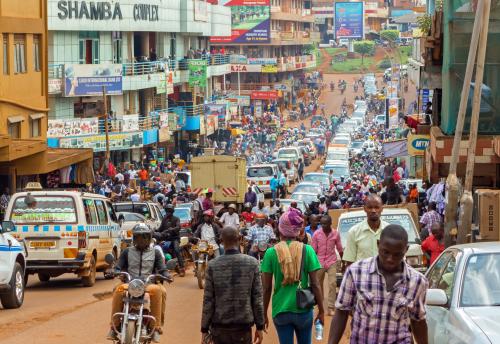
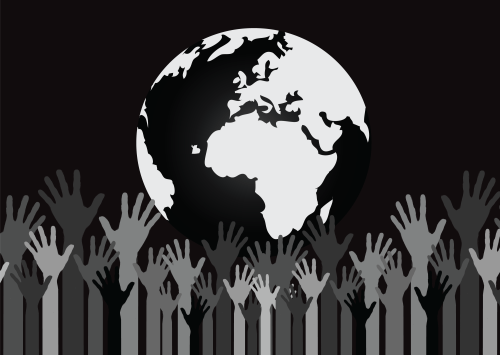
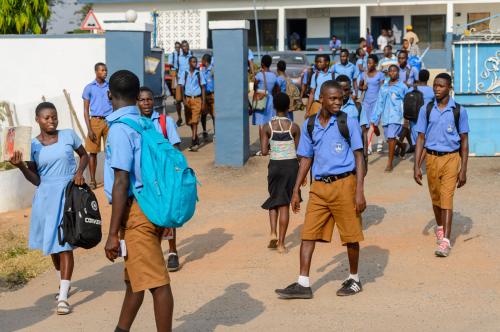
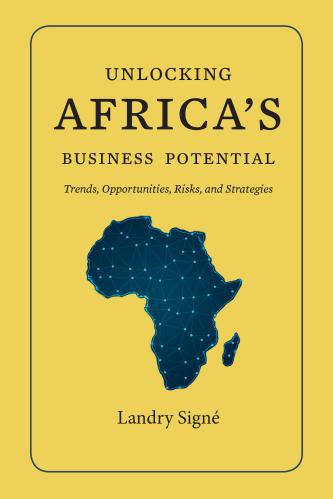

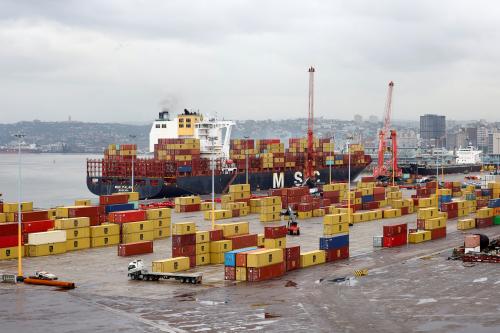
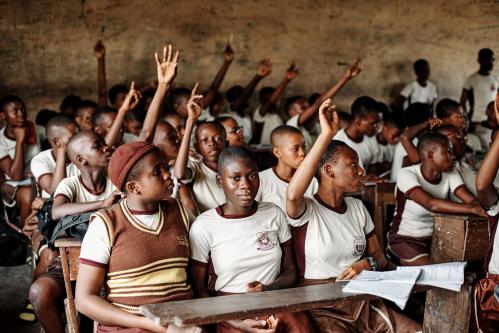

Commentary
Africa in the news: South Africa’s economy, tensions in Mali, and Mozambique’s liquified natural gas project
July 18, 2020